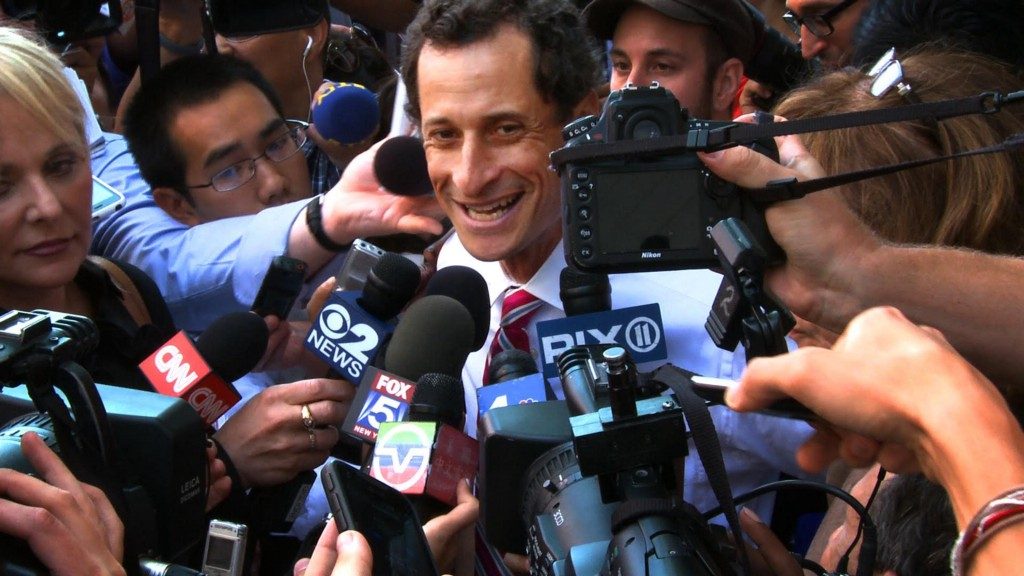Elyse Steinberg wrote, produced, and directed the acclaimed feature documentary “The Trial of Saddam Hussein” (PBS), an explosive exposé on what really happened at the former dictator’s trial. Her other credits include directing and producing for MTV, A&E, and the PBS series “Need to Know.”
“Weiner” will screen at the 2016 Sundance Film Festival: London on June 4. The film is co-directed by Josh Kriegman. You can catch “Weiner” in NY theaters now.
W&H: Please give us your description of the film playing.
ES: Anthony Weiner was a congressman when a sexting scandal forced his resignation. Two years later, he ran for mayor of New York City, betting that his ideas would trump his indiscretions. This film chronicles his 2013 mayoral run. With unprecedented access to Weiner, his family, and his campaign team, “Weiner” is a look inside a political comeback-turned-meltdown.
W&H: What drew you to this story?
ES: I always wanted to tell a character-driven verité documentary, and when the opportunity came along to film with Anthony, I knew it was something we could not pass down. It has been said that those that are the most exposed are the least revealed and that was certainly the case with Anthony’s story.
I was excited to tell a more nuanced and complex story of a person who had been reduced to a caricature and punchline.
W&H: What was the biggest challenge in making the film?
ES: We had over 400 hours of footage, which is a lot. One of the biggest challenges was certainly looking through all that material and find away to organize it before the edit.
W&H: What do you want people to think about when they are leaving the theater?
ES: We see this film as about more than just one person or one campaign — it provides a look at how politics today is driven by entertainment and spectacle. I am always thrilled when people identify some of those larger themes in our film and can see how relevant they are today, especially to our current presidential race.
W&H: What advice do you have for other female directors?
ES: The key thing for me was just sticking with this film for over three years and believing that at the end something would come to fruition. It is not always easy, especially as I have a toddler and have to juggle that as well. But I have an incredible husband who supports me and my work and an amazing co-director who shares the work load with me. I think having a supportive network is certainly a big help.
W&H: How did you get your film funded? Share some insights into how you got the film made.
ES: Our film was funded by a combination of equity investments and grants. When we began shooting, we had very little funding, but we continued anyway because we believed in the story. Once people saw our material, they could see the potential in the film and the funding came.







